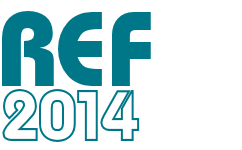On Friday Steve Calver ended his latest MRG post with a question: “Does anybody read this blog?” – and within an hour a reader from another university replied to say “I do!“. Which is great! So I thought I’d share some of the visitor stats so you can get an idea of who views the blog and how regularly.
We measure footfall on the blog using the fabulous Google Analytics. The stats below are based on a period of 18 days during July and August 2011.
On average during this period the blog received 166 unique visitors every day, each spending approximately 2 minutes on the site.
51% of visitors find us via internet search engines. The top search terms led readers to our blog over the past 18 days are:
- bournemouth
- innovation
- bu research blog
- bournemouth university research blog
- security
- digital hub bournemouth university blog
- ict
- health
- hefce ref training information events
- marie curie fellowship 2011
- kip jones rufus stone
- bournemouth research blog
- transport
- bu logo
- racism
- bournemouth uk
- culture
- eurostat
- statistics
- wow effect
41% direct traffic, i.e. via the web address or via the BU Staff Portal. This is excellent as it shows that you lovely people who work at Bournemouth University are using the blog – hooray!
8% of visitors are referred to our blog by external sites. Our top referring sites are:
The bottom two are interesting referrals as these are universities in the USA that have picked up on our new BU Open Access Publication Fund and promoted the idea via their own websites. This has then encouraged visitors to these sites to visit our blog.
At present 30% of visits to the blog are made by returning visitors and 70% are made by new visitors.
Our visitors to date have come from 91 different countries (as displayed in the map below). The top ten countries viewing the blog are:
- UK
- USA
- Germany
- Spain
- India
- France
- Poland
- Canada
- Belgium
- Italy

So why is all of this information important?
Because it shows us two important things:
1. That the blog is working internally as the main means of sharing research news and information!
2. That the blog is working externally to promote the excellent research undertaken at BU!
We’re always seeking to improve things so if you have your own webpages/blogs then please feel free to use them to promote the BU Research Blog or ask us to link to your webpages/blogs from this blog, and if you have any ideas on how to improve our blog and/or to increase readership then please let us know! 🙂

 Would you be prepared to share your data with the wider research community or the general public?
Would you be prepared to share your data with the wider research community or the general public? 

 A new book ‘
A new book ‘
 HEIF
HEIF Richard Brooks and Katherine Timms, Officers from CRE Operations, recently attended a training session called Total Proposal run by Aron Cronin, director of GIC limited. GIC limited is an international management and business consultancy specialising in business development and training services.
Richard Brooks and Katherine Timms, Officers from CRE Operations, recently attended a training session called Total Proposal run by Aron Cronin, director of GIC limited. GIC limited is an international management and business consultancy specialising in business development and training services.  Researchers, Mark Reed and Anna Evely from one of the
Researchers, Mark Reed and Anna Evely from one of the 
 The
The  Hot on the heels of our REF light-touch review of outputs last winter, our subsequent mini-mock exercise in two UOAs, and the release of the final
Hot on the heels of our REF light-touch review of outputs last winter, our subsequent mini-mock exercise in two UOAs, and the release of the final 





















 FHSS academics teaching in Nepal
FHSS academics teaching in Nepal New weight change BU paper
New weight change BU paper One week to go! | The 16th Annual Postgraduate Research Conference
One week to go! | The 16th Annual Postgraduate Research Conference Geography and Environmental Studies academics – would you like to get more involved in preparing our next REF submission?
Geography and Environmental Studies academics – would you like to get more involved in preparing our next REF submission? Congratulations to three former BU staff
Congratulations to three former BU staff MSCA Staff Exchanges 2024 Call – internal deadline
MSCA Staff Exchanges 2024 Call – internal deadline Applications are now open for 2025 ESRC Postdoctoral Fellowships!
Applications are now open for 2025 ESRC Postdoctoral Fellowships! Horizon Europe – ERC CoG and MSCA SE webinars
Horizon Europe – ERC CoG and MSCA SE webinars MaGMap: Mass Grave Mapping
MaGMap: Mass Grave Mapping ERC grants – series of webinars
ERC grants – series of webinars